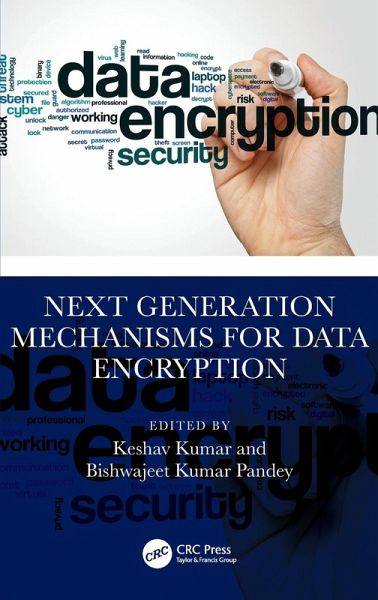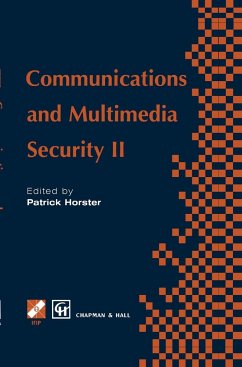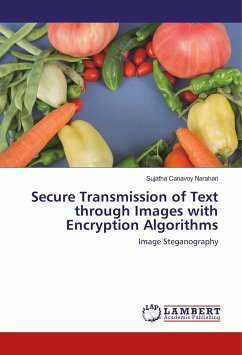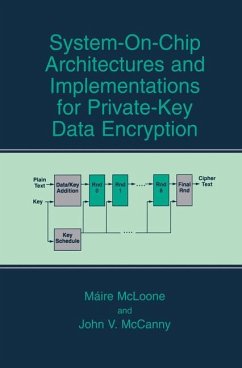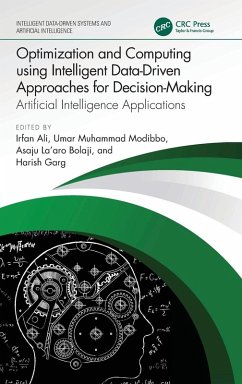Gebundenes Buch
Next Generation Mechanisms for Data Encryption
Versandkostenfrei!
Versandfertig in 1-2 Wochen
Weitere Ausgaben:

PAYBACK Punkte
81 °P sammeln!




This book gives readers a deep insight into cryptography and discusses the various types of cryptography algorithms used for the encryption and decryption of data such as asymmetry encryption, digital signatures, and hash functions. It also covers the mathematics behind the use of algorithms for encryption and decryption.
Keshav Kumar is an Assistant Professor at Parul University, Gujrat, India. He is pursuing his PhD in the field of deep learning from Lingayas Vidyapeeth, Faridabad, India. He has worked with Chandigarh University, Punjab,India (NIRF 29). He has completed his Master of Engineering in ECE with a specialization in Hardware Security from Chitkara University, Punjab, India. He has also worked as a JRF with NIT Patna and as an Assistant Lecturer at Chitkara University, Punjab, India. He has authored and coauthored 5 Books, 3 with Taylor & Francis CRC Press (1 Published, 2 books are under publication), 1 Book (Accepted with Apress Springer), 1 Book (Accepted with Nova Science) and over 45+ research papers in the field of hardware security, green communication, low-power VLSI design, machine learning techniques, and the Internet of Things (IoT). He has also worked with professors from 20 different countries. His areas of specialization include deep learning, hardware security, green communication,low-power VLSI design, machine learning techniques, Wireless Sensor Networks (WSN), and IoT. He has experience teaching Python programming, embedded systems, IoT, computer networks, and digital electronics. He is also associated with Gyancity Research Consultancy Pvt Ltd. He is also a member of (IAENG). His work has been cited more than 600 times, according to Google Scholar, with an h-index of 14 and 12, according to Google Scholar Scopus, respectively. Dr. Bishwajeet Kumar Pandey Dr. Bishwajeet Kumar Pandey is a Professor at GL Bajaj College of Technology and Management, Greater Noida, India. He is a Senior Member of IEEE since 2019. Dr. Bishwajeet Pandey holds an MTech in Computer Science and Engineering from the Indian Institute of Information Technology, Gwalior, India, and a PhD in Computer Science from Gran Sasso Science Institute, Italy. He has taught at esteemed institutions such as Chitkara University Chandigarh, Birla Institute of Applied Science Bhimtal, Jain University Bangalore, Astana IT University Kazakhstan, Eurasian National University Kazakhstan (QS World Rank 321), and UCSI University Malaysia (QS World Rank 265). Dr.Pandey is a prolific researcher, with 11 published books, 196 research papers indexed in Scopus, 45 papers in SCIE and a total 296 papers. He has garnered over 3,600 citations and holds an H-index of 28. His leadership roles include serving as the Research Head of the School of Computer Science and Engineering at Jain University Bangalore from 2021 to 2023, and as the head of the International Global Academic Partnership Committee at Birla Institute of Applied Science Bhimtal from 2020 to 2021. In 2023, Dr. Pandey was honored with the prestigious Professor of the Year Award at Lords Cricket Ground by the London Organisation of Skills Development. Beyond his outstanding research output, his greatest strength lies in his global academic network. He has visited 49 countries, participated in 105 international conferences, and co-authored papers with 218 professors from 93 universities across 42 nations.
Produktdetails
- Verlag: CRC Press
- Seitenzahl: 306
- Erscheinungstermin: 24. Januar 2025
- Englisch
- Abmessung: 240mm x 161mm x 21mm
- Gewicht: 625g
- ISBN-13: 9781032832845
- ISBN-10: 1032832843
- Artikelnr.: 71570291
Herstellerkennzeichnung
Libri GmbH
Europaallee 1
36244 Bad Hersfeld
gpsr@libri.de
Für dieses Produkt wurde noch keine Bewertung abgegeben. Wir würden uns sehr freuen, wenn du die erste Bewertung schreibst!
Eine Bewertung schreiben
Eine Bewertung schreiben
Andere Kunden interessierten sich für




